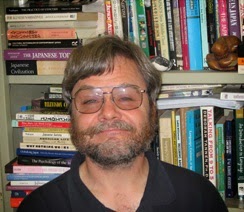Those who are interested can now read the article online: Chinese version / English version
 |
| Chinese University Bulletin No.1, 2016, p.20-21 |
 |
| Chinese University Bulletin No.1, 2016, p.20-21 |
 |
| Multiculturalism in Action Project in Chinese University Bulletin |
 |
| Screenshot of the article |
'The role of anthropology is to show the complexity of culture; culture interweaves with biology, environment, economics, religion, political structures and so on.’ Commenting on the characteristics of anthropology, Professor Mathews stressed the pivotal role played by ethnography and participant observation, a research method commonly employed by anthropologists and ethnographers.'
'Anthropology provides a vehicle for examining the many facets of life, which range from gender, religion, language, politics, economics, food, medicine, and material culture to rituals and symbols. For that reason, anthropology has much to offer to a broad education.'
「過去三十年,中國創造了驚人的經濟奇跡,隨著工業化和城市化的迅速發展,民眾的消費生活也發生了史無前例的革命:消費品種類繁多,不斷推陳出新。一次性用品、智慧電子產品在帶給人們便利生活的同時,他們短暫的使用週期也製造了大量的垃圾;繁多的商品還帶來多種包裝物,它們則在以更快的速度完成從商品到垃圾的轉變;而在“刺激內需”、“電器下鄉”,“結婚要有房和車”等夢想口號的感召下,更多的商品被生產出來,而刺激消費也意味著刺激“丟棄”。消費有快感,丟棄似乎也是一種樂趣,在時尚和潮流面前,“丟棄”不一定是因為商品不再具有使用價值,人們更多的是通過“丟棄”和消費的行為在塑造著消費者的新身份,但與此同時,大量的城市“固體廢棄物”(municipal solid waste)也被製造出來。
根據世界銀行的報告,2004年中國固體廢棄物年產1.9億噸,已經取代美國,成為了全世界第一的垃圾生產大國。到2012年,據《中國城市建設統計年鑒》的統計,全國的生活垃圾總量已經增加到了2.39億噸。儘管垃圾生產量如此巨大,卻並未引起太多人的注意——或許更多的時候,人們甚至將此當作一個發展的指標。但不可輕視的是,垃圾已經構成了中國環境治理和城市管理的一個嚴峻挑戰,國外學者更是將生活垃圾帶來的問題稱為城市化過程中的“廢棄物危機”。從08年至今,筆者持續關注和研究與垃圾相關的問題,並在北京和廣州兩座城市做田野調查,對象包括普通市民、環保人士、城市管理工作人員、相關科研人員、相關企業家、清潔工人、拾荒者、廢品收購站經營者等,本文將基於此檢視中國當下的垃圾問題以及與之相關的社會和文化現象。」
 |
| 《澎湃新聞》網頁截圖 |
 |
| 復旦-人類學之友博客截圖 |
 |
| 環球人物網截圖 |
「對廣場舞者來說,跳舞是一種重要的生活情趣,大大小小的舞隊已然成為現代中國中老年女性排遣孤獨、溝通情感的團體。但對大多數人來說,廣場舞大媽的形象卻是一種約定俗成的笑料,而污名(stigma)背後,正折射出現代中國女性身份認同的危機與焦慮,公共空間中的矛盾和碰撞,暗含著變革時代的隱喻與諷刺。當我們回顧歷史變遷,可能會把這一切衝突歸於它的戲劇性,但在當下,審慎辨析的思考視角將決定未來的發展道路。」
 |
| 北京修遠經濟與社會研究基金會網頁截圖 |
 |
| Photo Credit: Free Music Guide |
 |
| Photo Credit: Free Music Guide |
 |
| Cover |
 |
| Professor Gordon Mathews. Photo Credit: Mingpao Daily |
「...作為人類學家,他最享受與在場的陌生人交談:『早幾天在旺角,看到不同立場的人正在理性辯論,你來我往,這正是我所嚮往的公民課堂!』他直言,為人師表不能鼓勵學生犯法,但他走入現場,同樣為履行教師職責:『人類學強調對不同觀點的理解,我正在做這件事。老師的責任是促進思考,令人們想得更透徹,所以每遇上持相反立場的人,我很樂意跟他們交談,甚至辯論!』...
...消弭中的香港價值,卻在街頭重現。『我從未見過有示威可以如此文明有禮。這或許誇張,但現場確有如社會主義下的烏托邦,有公眾書架鼓勵閱讀分享、有自修區讓學生溫習;人人都有手尾,自動自覺執拾;越過石壆又有人攙扶……若理想的社會主義者要找個地方借鏡,他們不應去內地,那只是愚蠢的獨裁!他們反而應該來看看現在的香港!』麥高登打趣說道。...」
Mingpao Daily, Sunday (19/10/2014), Full article (Chinese only)
 |
| A 65 years old retired pharmacist dancing on the public square. Photo Credit: 姜曉明@Southern People Weekly |
Please click here to read the article. (Chinese only)「流行的觀點常常認為,每個廣場舞大媽都帶著抹不去的“紅色基因”。如果廣場舞真能完全代表紅色年代,如何解釋她們穿著的短裙、高跟鞋和扭動的腰肢呢?紅色基因確實存在,卻很難說是主流,本文試圖從女性氣質這一視角解讀廣場舞的流行。在一本經典人類學著作中,學者格爾茨描述了巴厘島上的男人如何通過鬥雞展現陽剛氣質和社會激情,其實,中國的中年女性也在通過廣場舞展演著女性氣質,從而實現認同和愉悅感。在對這一群體進行深入調研之後,我認為廣場舞的流行有一種必然性,它完美地解決了女性生存的兩個需求:找尋愉悅感和適應社會性別期待....」
 |
"口述|王芊霓 採訪|EDGE記者 王冬豔(王芊霓,香港中文大學人類學碩士。從2013年6月起研究廣場舞,並已在第17屆哈佛大學東亞系研究生會議發表相關論文。)
廣場舞在臺灣地區也流行過,叫土風舞,除了叫法不同,本質上和大陸的廣場舞沒什麼區別,我覺得跳廣場舞是挺有中國文化特色的事兒,我研究的時候廣場舞也沒有像現在這樣有爭議。
一些普遍的觀點認為,中國社會越來越“個體化”。我就是好奇既然是“個體化”,那如何解釋像廣場舞這樣的集體活動。而我自己也學過8年的舞蹈,對舞蹈不是完全的門外漢,這大概是我研究廣場舞的最初想法。因為我的舞蹈動作標準,不少阿姨都願意和我跳,也會讓我教她們一些動作,這樣混熟了以後,她們也向我敞開了心扉。
歡迎被研究的廣場舞大媽
按此閱讀全文。我學的是人類學,需要以“局外人”的身份觀察事物,對原生文化保持一定的距離,因此在廣場舞上多用田野調查。我的田野調查選擇的是河南省的一個非省會城市,城市中等但變化很快,原住民會為了學習和工作去大城市,同時也會有外來移民來這個城市定居,新區的建設也形成了新的鄰里關係,我覺得這樣的城市在中國很有代表性。我用了大概半年的時間採訪了城市中6個比較活躍的廣場舞舞隊..."
 |
| Prof. Maria Tam (Right) and workshop participant Mr. Ren Qiran sharing at the press conference. |
 |
| Prof. Tam discussing the social marginalisation faced by the ethnic minorities in Hong Kong. |
 |
| Professor Gordon Mathews |
"I am deeply upset about the Chinese government's decision to deny democracy to Hong Kong, and just wrote this to Benny Tai: "Some of us who are not Chinese are very willing to engage in Occupy Central. However, we are worried that, as foreigners, and particularly as Americans, we will be playing into the Mainland's propaganda. We don't want to be involved if we would hurt the Occupy Central movement. What do you think we should do? Benny, feel free to respond privately if it seems more appropriate, if you can find time to do so-- " I'll see what he says! What do any HK or Chinese readers of this think? Would an American getting arrested help or hurt the Hong Kong democracy cause in the eyes of the Mainland?
If CUHK classes are shut down at the end of September, I will support the student protesters--I will film all my classes and put them on-line, and make sure that no one who is arrested and jailed will academically suffer for it, although I will also do all I can to offer my class for those who want to attend, and who aren't participating in the boycott: this is strictly a matter of free, individual choice, all the more, of course, for the many students who are not from Hong Kong. But I am still unsure as to what to do myself..."
Professor Mathews (1/9/2014), Original text and corresponding discussion
 |
| The original status and discussion. Photo Credit: Professor Mathews's facebook |
「佔中和罷課浪潮將至,每人在多重身份裏掙扎。中大人類學系系主任麥高登(Gordon Mathews)苦惱得在facebook向佔中發起人之一戴耀廷查詢,外國人可否佔中?會不會被北京抹黑為外國勢力干預?他指不同膚色亦是香港人,對我城匹夫有責。面對有學生表明罷課,他重回教師角色表明會繼續授課,會錄影課堂讓學生網上補課,又呼籲學系寬鬆處理罷課學生...」
Apple Daily, Local News (3/9/2014), Full article (Chinese only)
「...中文大學人類學教授Gordon Mathews表明,對人大常委會決議感到極為不滿,支持學生的罷課行動,更希望能參與佔中。不過,作為外籍學者的他憂慮,北京斥外國勢力干預,已去信佔中發起人戴耀廷,徵詢其意見...」
Sing Tao Daily, Local News (3/9/2014), Full article (Chinese only)
"...On Tuesday a department head at Chinese University said Occupy Central would be a legitimate reason to miss classes. Professor Gordon Matthews said he will provide filmed lectures to help students who join class boycotts in protest at Beijing's restrictive framework for the city's political reform..."
South China Morning Post, Politics (4/9/2014), Full article (English only)
“…徐渭芝採訪了大概40個阿寶這樣的跨境媽媽。她的報告 說,很多跨境母親都後悔來港生子,甚至還想一死了之。徐渭芝說香港政府當初為了刺激經濟而鼓勵內地孕婦來港生子的時候,並沒有預想到今天的情況,這是行政失當。在報告中還提到一個母親說:“有時候我的兒子很吵,吵到了收留我們的親戚。我當然會跟兒子說,可他只有三歲,什麼都不懂。我打他,他反而哭得更厲害。有一次他哭鬧不斷,我就瘋了…”
“…Chee interviewed about 40 cross-border families in her study. Regret is prominent among them, many even have a death wish. The ambiguity of the One-Child Policy falls into interpretation of local governments. Some women she interviewed said they also paid a fine to the local government for having a second child in Hong Kong. Chee said the Hong Kong government didn’t envision the problems when they opened the door for the women to give birth in Hong Kong as a way to boost the economy after SARS in 2003.In Chee’s report, one of the mothers said, “Sometimes my son makes noise. The relatives whom we are staying with are annoyed. I talk to my son but he is too young to understand. He is only three. I hit him and he cries even louder. Once I went totally crazy as he cried and cried. To make him stop crying…”
 |
| picture source: www.bbc.com |
 |
| Prof. Mathews supported the protest. |
 |
| Prof. Sea-ling Cheng marched with asylum seekers. |
 |
| The current system provides the means to closely monitor the illegal population needed for the profit of many Hong Kong businesses. |